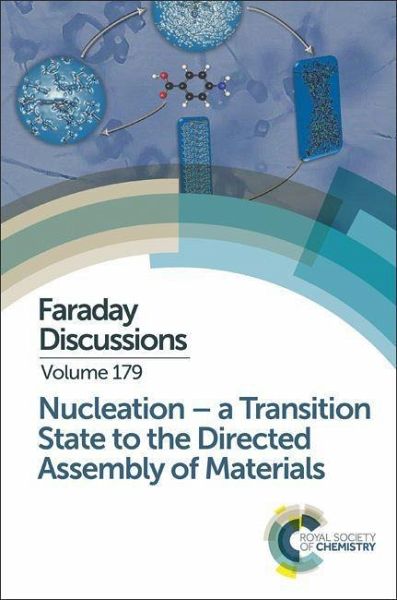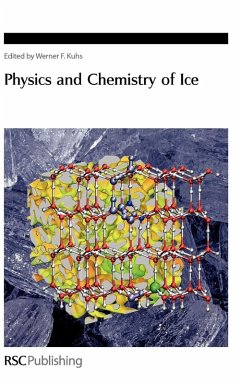
Nucleation: A Transition State to the Directed Assembly of Materials
Faraday Discussion 179
Versandkostenfrei!
Versandfertig in über 4 Wochen
211,99 €
inkl. MwSt.

PAYBACK Punkte
106 °P sammeln!
The crystallisation phase transformation process and the resulting creation of crystalline materials from liquid phase precursors are central to the science and process engineering of materials in their broadest sense. Crystallisation involves two distinct stages: nucleation and growth. Due to the nano-scale size domain within which the nucleation process functions it is a much less understood process compared to the growth process. As a result, elucidating the fundamental physics and chemistry that govern the formation and structure of the nucleation supra-molecular transition state remains o...
The crystallisation phase transformation process and the resulting creation of crystalline materials from liquid phase precursors are central to the science and process engineering of materials in their broadest sense. Crystallisation involves two distinct stages: nucleation and growth. Due to the nano-scale size domain within which the nucleation process functions it is a much less understood process compared to the growth process. As a result, elucidating the fundamental physics and chemistry that govern the formation and structure of the nucleation supra-molecular transition state remains one of the truly unresolved 'grand challenges' of the physical sciences. Following the Nucleation - A Transition State to the Directed Assembly of Materials: Faraday Discussion (April 2015), this book brings together the growing body of theoretical and experimental work. It assesses recent progress in this field, highlights on-going challenges, and discusses future work still needed.












